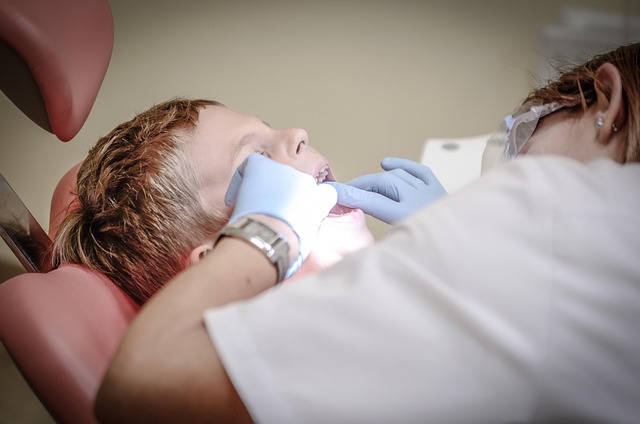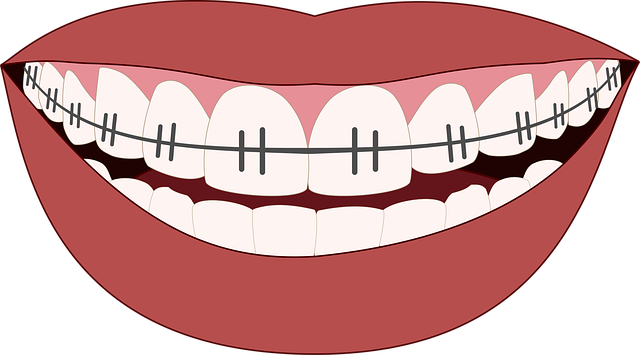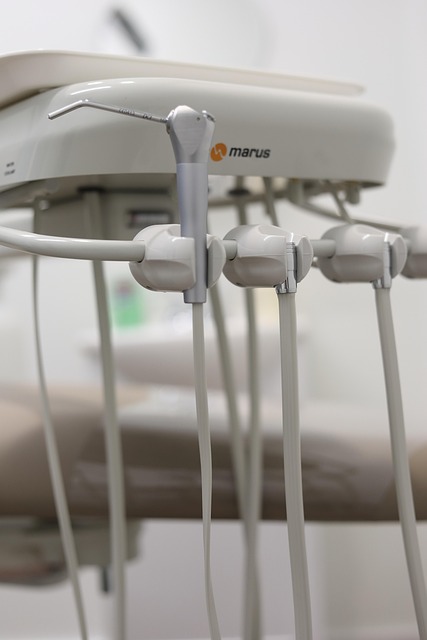Dental practices require specialized coverage for dental practices due to unique risks such as data breaches, equipment damage, and legal liabilities. Standard business insurance often doesn't address these challenges adequately. Customized solutions offer comprehensive risk management, protecting against malpractice, property damage, and income loss during unforeseen events. This ensures peace of mind, asset protection, and commitment to patient safety and practice sustainability. Assess your practice's needs, research specialized dental insurance options, and compare policies based on coverage scope, premiums, deductibles, and dentist networks to find the best fit.
In the competitive world of dentistry, securing your practice with adequate coverage is not a luxury but a necessity. Understanding the unique risks inherent in dental practices is the first step towards effective risk management. Customized insurance coverage plays a pivotal role in safeguarding your investment, employees, and patients. This article guides you through navigating these complexities, from identifying essential coverage types to creating a comprehensive strategy that ensures long-term security for your practice.
- Understanding the Unique Risks of Dental Practices
- The Importance of Customized Insurance Coverage
- Types of Coverage Essential for Dental Offices
- Creating a Comprehensive Risk Management Strategy
- Step-by-Step Guide to Obtaining Suitable Coverage
- Benefits and Long-Term Security with Personalized Plans
Understanding the Unique Risks of Dental Practices

Dental practices face a unique set of risks that require tailored coverage solutions. While general business insurance policies provide a foundation, they often fail to address the specific challenges posed by this specialized industry. Dental offices deal with sensitive patient information and extensive medical equipment, making data security and property protection paramount. Additionally, claims related to professional negligence, dental malpractice, or personal injuries sustained on the premises can have significant financial implications.
Customized coverage for dental practices goes beyond standard business insurance. It involves comprehensive risk management strategies that include liability protection, covering potential lawsuits from patients or staff. This also extends to property damage or theft of expensive equipment and electronics. Specialized dental coverage ensures that practices are adequately protected against these unique risks, enabling them to focus on delivering quality patient care without the constant worry of financial exposure.
The Importance of Customized Insurance Coverage

In today’s competitive landscape, having tailored insurance coverage for your dental practice is no longer a consideration—it’s a necessity. A customized policy ensures that your business is shielded from potential risks and financial losses. Every dental practice is unique, with its own set of challenges and responsibilities, be it specialized services, a diverse patient base, or specific equipment requirements. Standardized insurance plans often fall short in addressing these nuances, leaving gaps in protection.
By opting for customized coverage, you gain peace of mind knowing that your practice is adequately protected. This includes comprehensive liability coverage to safeguard against malpractice claims, property damage, and personal injury. Additionally, specialized coverage for dental equipment, inventory, and even income loss during unforeseen events ensures business continuity. Such tailored insurance not only protects your assets but also demonstrates a commitment to patient safety and practice sustainability.
Types of Coverage Essential for Dental Offices

Dental offices, much like any other business, require a comprehensive suite of insurance coverage to mitigate risks and ensure smooth operations. The types of coverage essential for dental practices extend beyond general liability and property damage protection. Firstly, professional liability insurance is paramount. This protects against claims of negligence or malpractice, covering costs associated with legal defence and potential settlements. Such insurance is crucial in safeguarding the financial health of the practice and maintaining its reputation.
Additionally, coverage for dental practices should include workers’ compensation insurance to protect employees from work-related injuries or illnesses. This is not only a legal requirement but also demonstrates a commitment to the well-being of one’s staff. Other vital coverages include property insurance to safeguard physical assets such as equipment and buildings, as well as business income/interruption insurance to mitigate losses incurred during periods of downtime due to covered events like natural disasters or equipment failures.
Creating a Comprehensive Risk Management Strategy

Creating a comprehensive risk management strategy is essential for any dental practice aiming to secure its future. This involves a thorough assessment of potential risks and vulnerabilities unique to your practice, such as malpractice claims, data breaches, property damage, or equipment failure. A well-customized strategy includes implementing robust protocols for patient safety, staff training on best practices, and regular reviews of insurance coverage for dental practices.
By adopting a proactive approach, you can mitigate these risks effectively. This might include investing in state-of-the-art equipment, keeping detailed records digital and secure, and ensuring all staff are up-to-date with relevant certifications. Additionally, tailored coverage for dental practices from reliable insurance providers offers financial protection against unforeseen events, allowing you to focus on delivering quality care to your patients.
Step-by-Step Guide to Obtaining Suitable Coverage

Step-by-Step Guide to Obtaining Suitable Coverage for Dental Practices
1. Assess Your Practice Needs: Begin by evaluating your dental practice’s unique requirements. Consider factors like staff size, equipment, and the types of procedures you perform. This step is crucial as it ensures you get tailored coverage that addresses specific needs, avoiding unnecessary or insufficient protection.
2. Research Insurance Options: Explore various insurance providers specializing in dental coverage. Compare policies offered by different companies, focusing on aspects such as scope of coverage, premiums, deductibles, and network of dentists. Online resources can help you narrow down options, making it easier to find suitable dental practice insurance.
Benefits and Long-Term Security with Personalized Plans

In today’s competitive healthcare landscape, securing comprehensive coverage for dental practices is paramount to ensuring long-term success and stability. Personalized plans offer a tailored approach that goes beyond basic insurance packages, addressing unique practice needs and financial goals. This level of customization provides dental professionals with enhanced peace of mind, knowing their practice is shielded against unforeseen circumstances, equipment failures, or legal liabilities.
By implementing customized coverage, dental practices can mitigate risks and secure their future. These plans often include tailored risk management strategies, access to expert advice, and financial protection for unexpected events. In the long term, personalized insurance fosters a more resilient practice environment, enabling providers to focus on patient care and growth without constant worry about potential financial setbacks.
